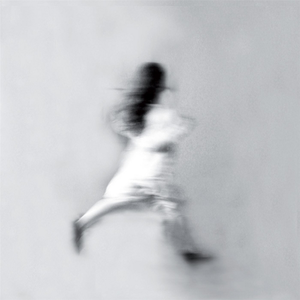Madame
Grammophone Lyrics
Jump to: Overall Meaning ↴ Line by Line Meaning ↴
Oltre gli occhi di perla
Hai un appeal da curare, da trattenere.
Nei tuoi sguardi gli orrori
Fanno a gara coi miei
Ma nessun vincitore porterà a casa medaglie.
La voglia di piangere, di stringersi ed urlare
è una prassi vitale,
Non hai più niente per me,
Non hai più niente per te
E per chi ti consola.
Cosa rimane attaccato alle labbra,
Forse è l'amaro che ti colma e
Che non sai riciclare.
Se ciò che spaventa è l′orizzonte
Si fa fatica a decollare,
La tua paresi sociale
è il nostro male in comune.
No, non hai più niente per me.
Non hai più niente per te e
Per chi ti consola,
Per chi ti guarda la gola,
Chi ripete ogni ora
"Abbi cura di te,
Abbi cura di te,
Abbi cura."
In "Madame", Grammophone sings about a woman with an alluring personality that needs to be restrained and guarded. The lyrics "Parla piano, madame, oltre gli occhi di perla hai un appeal da curare, da trattenere" (Speak softly, madame, beyond the pearl eyes you have an appeal to be treated and detained) express the need for her to control her appeal, which could otherwise become uncontrollable. The singer is seen in her eyes and has a sense of horror, but the horror is experienced by both the singer and the woman. The lyrics then say that there is nothing left for anyone, not the woman nor the people consoling her. The bitterness that she experiences cannot be recycled, and if the horizon is frightening, it becomes challenging to take off.
The song speaks to how we all have commonalities in our need to cry, hold onto something, and be comforted in difficult times. The "voglia di piangere, di stringersi ed urlare" (desire to cry, to hold on and to scream) is described as a vitally necessary practice and a common truth. Additionally, the "paresi sociale" (social paresis) that the singer experiences is said to be the common enemy of everyone. Grammophone sings that there is no one left for the woman as she struggles to cope with her bitterness and maintain control. The song appears to convey the importance of taking care of oneself and the need for others to console and care for one another in difficult times.
Line by Line Meaning
Parla piano, madame,
Speak softly, madame,
Oltre gli occhi di perla
Beyond your pearl eyes
Hai un appeal da curare, da trattenere.
You have a charm to take care of and hold back.
Nei tuoi sguardi gli orrori
In your gaze, horrors
Fanno a gara coi miei
Compete with mine.
Ma nessun vincitore porterà a casa medaglie.
But no winner will take home medals.
La voglia di piangere, di stringersi ed urlare
The desire to cry, to hug and to shout
è una prassi vitale,
Is a vital practice,
è un′esigenza comune.
Is a common need.
Non hai più niente per me,
You have nothing left for me,
Non hai più niente per te
You have nothing left for yourself
E per chi ti consola.
And for whoever consoles you.
Cosa rimane attaccato alle labbra,
What remains stuck to your lips,
Forse è l'amaro che ti colma e
Perhaps it is the bitterness that fills you up and
Che non sai riciclare.
That you don't know how to recycle.
Se ciò che spaventa è l′orizzonte
If what scares you is the horizon
Si fa fatica a decollare,
It becomes difficult to take off,
La tua paresi sociale
Your social paralysis
è il nostro male in comune.
Is our common illness.
No, non hai più niente per me.
No, you have nothing left for me.
Non hai più niente per te e
You have nothing left for yourself and
Per chi ti consola,
For whoever consoles you,
Per chi ti guarda la gola,
For whoever watches over your throat,
Chi ripete ogni ora
Who repeats every hour,
"Abbi cura di te,
"Take care of yourself,
Abbi cura di te,
Take care of yourself,
Abbi cura."
Take care."
Contributed by Elena T. Suggest a correction in the comments below.
